Imagine centralizing all your customer interactions to ensure consistent, efficient, and tailored experiences at every touchpoint. A customer engagement platform does that and more. It significantly boosts customer satisfaction and loyalty.
A customer engagement platform greatly helps in personalization at every stage of the customer journey. Studies show that 80% of consumers are more likely to buy from brands that offer personalized experiences by collecting customer data and making an engaging experience.
Ready to take your customer engagement to the next level? Dive into our blog to learn more about customer engagement platforms!
When using CallHippo or any customer engagement platform, focus on building personalized interactions. Use customer data and insights to tailor your communication, offer relevant solutions, and make customers feel valued.
What Is a Customer Engagement Platform?
A customer engagement platform is a technology-driven solution designed to enhance businesses’ interactions with their customer base.
It combines multiple functionalities such as customer relationship management (CRM), marketing automation, customer service, and communication tools into one cohesive system.
This integration allows businesses to engage customers through personalized, data-driven interactions. This ensures a consistent experience across various channels, including email, social media, chat, and more.
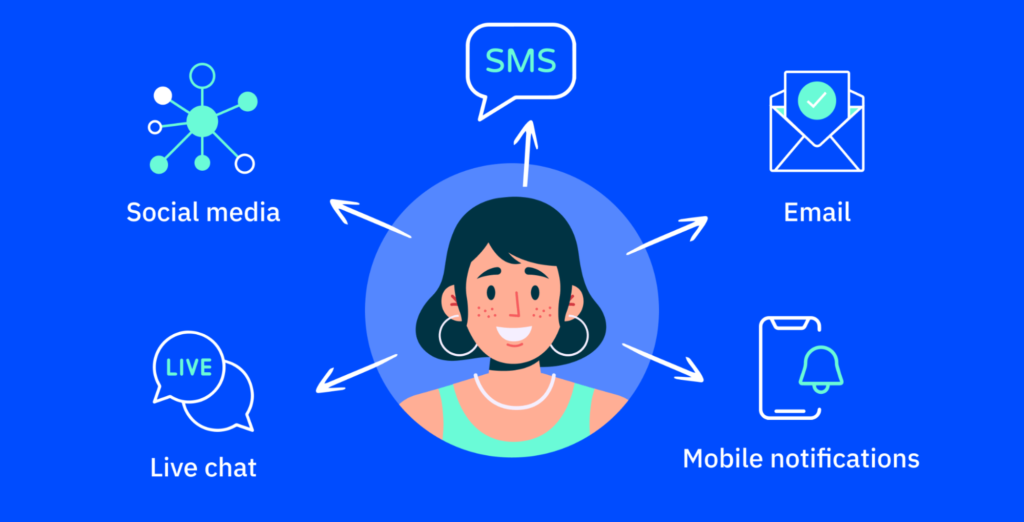
Key Features of a Customer Engagement Platform
Customer Engagement Platforms aim to optimize and improve interactions between businesses and their customers. They integrate various tools and channels, offering various features to deliver consistent and efficient customer experiences.
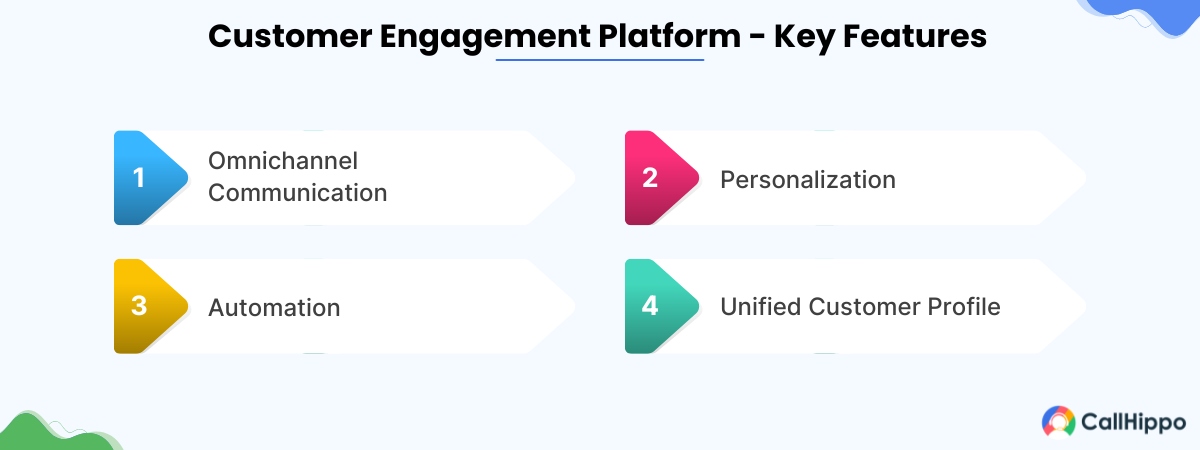
Here is the list of features in detail:
1. Omnichannel Communication
Omnichannel communication facilitates seamless interactions across multiple channels like email, social media, chat, SMS, and phone. This ensures a unified customer experience, enabling customers to engage on their preferred platforms smoothly and without interruptions in service quality or information flow.
This integrated approach helps maintain continuity in customer interactions and improves customer satisfaction and loyalty.
2. Personalization
Using customer data, personalization in a customer interaction platform customizes communications and offers according to individual preferences, behaviors, and past interactions.
This strategy of delivering pertinent and timely content elevates customer engagement and satisfaction substantially. This individualized approach fosters a sense of value and understanding, resulting in enhanced loyalty and improved conversion rates.
Personalization transforms generic interactions into meaningful experiences, making the customer interaction platform a crucial tool for effective engagement.
3. Automation
Automation in a customer interaction platform streamlines repetitive tasks such as sending emails, scheduling follow-ups, and managing support tickets.
Automating these tasks allows businesses to maintain consistent and punctual customer interactions while enabling staff to concentrate on higher-level strategic initiatives. This enhancement in efficiency reduces the likelihood of human errors and boosts overall productivity.
Moreover, automation enhances the customer engagement by delivering prompt responses and personalized content, driving higher engagement and satisfaction.
4. Unified Customer Profile
A customer engagement platform enables users to gain a comprehensive view of each customer by combining data from various touchpoints into a single profile. This unified approach enables personalized interactions and targeted marketing, enhancing the effectiveness of your customer engagement and improving overall satisfaction.
By centralizing data, the engagement platform ensures that all departments have access to up-to-date and consistent customer information, which enhances decision-making and improves overall customer engagement strategies.
Benefits of Using a Customer Engagement Platform
A customer engagement platform enhances interaction and relationship-building between businesses and their customers, fostering loyalty, brand advocacy, and valuable insights for business growth.
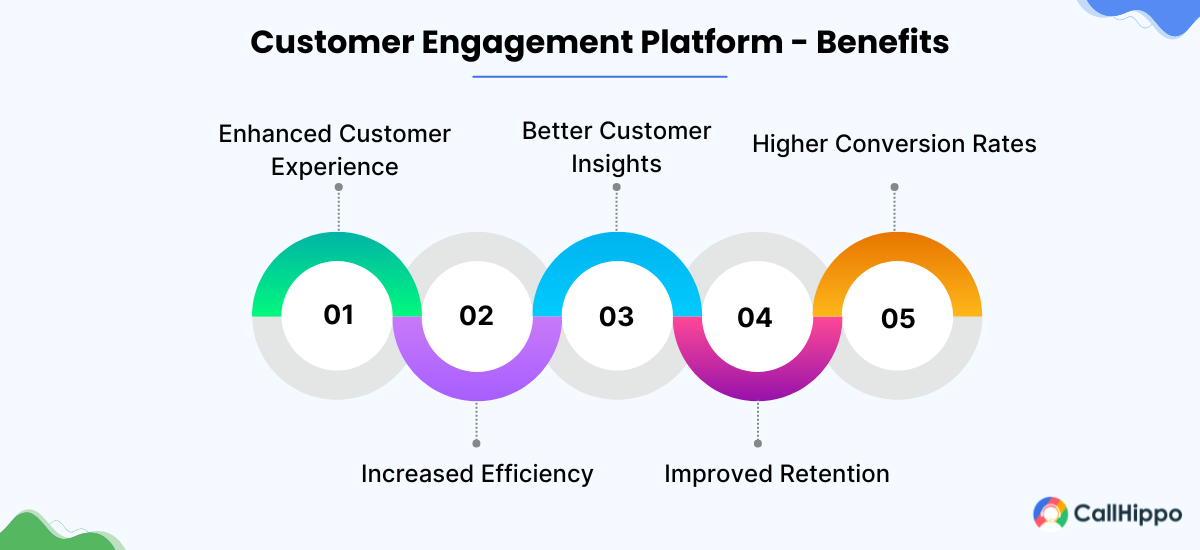
Here are the benefits in detail, along with examples:
1. Enhanced Customer Experience
A customer engagement platform provides businesses with tools and capabilities to deliver a personalized and seamless customer experience.
By leveraging data analytics, automation, and omnichannel communication, businesses can understand customer preferences better, anticipate needs, and offer timely and relevant interactions across various touchpoints.
This improved experience results in heightened customer satisfaction and loyalty, in turn, elevated retention rates and revenue generation for the business.
Example:
A retail company uses a customer engagement platform to track online interactions, purchases, and feedback, pinpointing each customer’s preferences. This data fuels personalized product recommendations and promotions on the website.
The platform’s automation responds promptly to social media inquiries. This tailored approach makes customers feel valued, fostering loyalty and positive brand experiences.
2. Increased Efficiency
A customer engagement platform streamlines processes by centralizing customer data and automating repetitive tasks. With features like automated responses, targeted marketing campaigns, and real-time analytics, businesses can optimize resource allocation, reduce manual workload, and improve decision-making.
This efficiency improvement enables teams to prioritize high-value tasks, resulting in quicker response times, cost-effectiveness, and overall operational excellence.
Example:
An e-commerce company uses a customer engagement platform to automate order confirmations and shipping notifications. This reduces manual effort, minimizes errors, and ensures timely customer communication.
As a result, the support team can focus on resolving complex issues, improving overall efficiency and customer satisfaction.
3. Better Customer Insights
A customer engagement platform enables businesses to gather comprehensive data on customer behaviors, preferences, and feedback across various touchpoints.
Through data analysis, businesses acquire valuable insights into customer trends, buying behaviors, and sentiment.
These insights help in making data-driven decisions, optimizing marketing strategies, improving product offerings, and ultimately enhancing the overall customer experience.
Example:
A software company uses a customer engagement platform to track user interactions with their app, including feature usage, feedback submissions, and support tickets.
Analyzing this data reveals a significant number of users facing challenges with a specific feature. With this insight, they prioritize enhancing the feature, leading to heightened user satisfaction and retention.
4. Improved Retention
A customer engagement platform helps businesses improve customer retention by fostering stronger relationships and delivering personalized experiences. By comprehending customer preferences, behaviors, and feedback, businesses can pre-emptively tackle issues, provide pertinent solutions, and offer exceptional support.
This proactive strategy fosters trust, loyalty, and, subsequently, higher customer retention rates, contributing to long-term business success.
Example:
A subscription-based streaming service uses a customer engagement platform to analyze user behavior and preferences.
They notice a trend where users who receive personalized content recommendations and exclusive offers tend to stay subscribed longer.
Leveraging this insight, the platform consistently tailors content suggestions and promotions, resulting in improved customer retention and increased revenue.
5. Higher Conversion Rates
A customer engagement platform contributes to higher conversion rates by optimizing the customer journey and enhancing interactions.
Through personalized messaging, targeted promotions, and timely follow-ups, businesses can effectively nurture leads and guide them toward making a purchase.
By leveraging data insights and automation, the platform ensures relevant and engaging communication, ultimately driving more conversions and increasing revenue for the business.
Example: An online fashion retailer employs a customer engagement platform to deliver tailored discount codes and product suggestions, considering a customer’s browsing and buying history.
This customized strategy drives higher click-through and conversion rates, as customers are inclined to purchase when offered relevant incentives, ultimately boosting the retailer’s sales.
Top 5 Customer Engagement Platforms
There are many customer engagement platforms available in the market.
| Brand Name | Rating | Pricing |
|---|---|---|
| CallHippo | Starter - $18 per user per month Professional - $30 per user per month Ultimate - $42 per user per month | |
| HubSpot | Team: $55/user/month Growth: $89/user/month Professional: $115/user/month Enterprise: Contact sales | |
| Salesforce | Marketing cloud engagement - $1250 org per month Marketing account cloud engagement - $1250 USD per month (up to 10,000 contacts) Marketing cloud growth edition - $1500 USD per month | |
| Twilio | Contact sales team for pricing. | |
| Zendesk | Zendesk team - $55 per agent per month Suite growth - $89 per agent per month Suite professional - $115 per agent per month Suite enterprise - Contact the sales team for pricing |
After extensive research and analysis, we have curated a list of customer engagement platform. These software are carefully selected based on usability and satisfaction scores, including features, ease of use, customer support, ratings, and reviews from SoftwareSuggest, G2, and Capterra. Our aim is to assist businesses in identifying the most suitable software to streamline their operations.
Below is the list of top 5 customer engagement software:
1. CallHippo
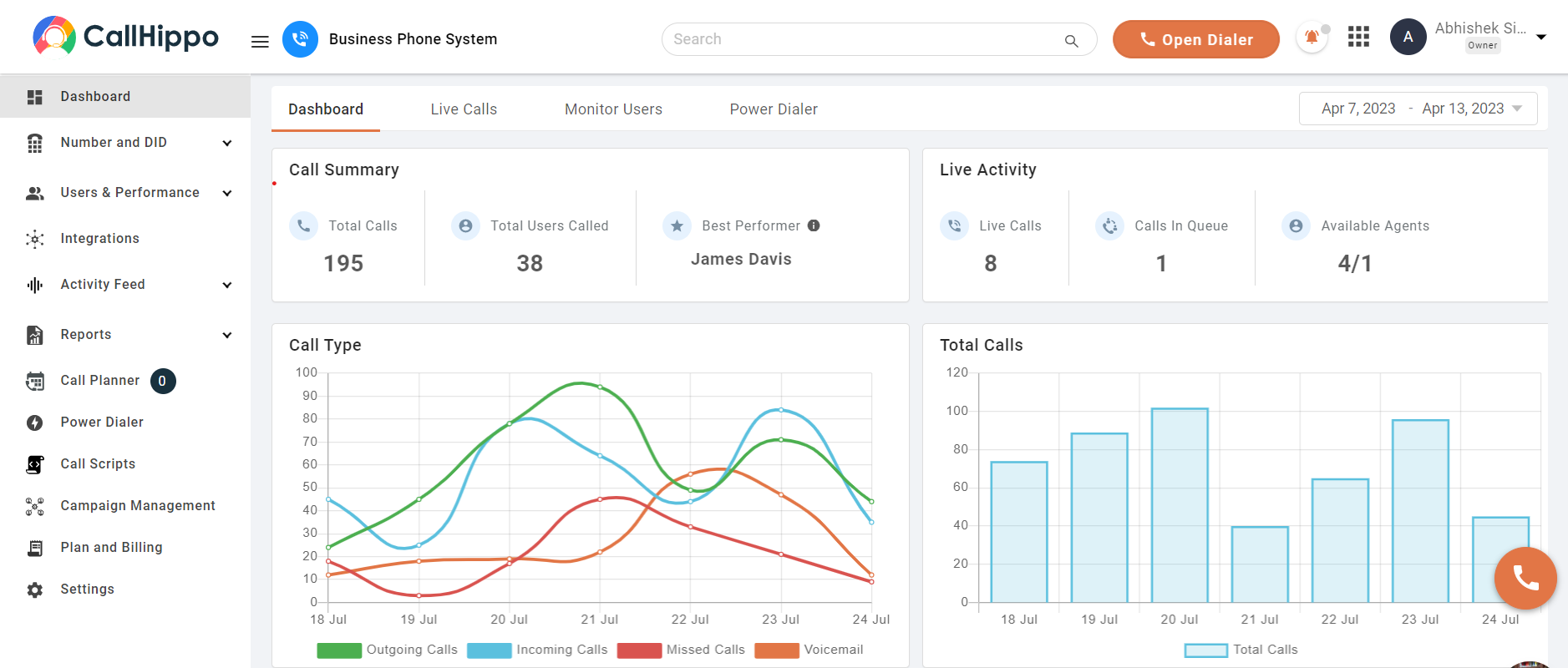
CallHippo is one of the better customer engagement tools and serves as a crucial tool for businesses to enhance their communication and interaction with customers.
It provides a cloud-based phone system and virtual phone numbers that enable businesses to engage with customers through voice calls, SMS, voicemail, and other telecommunication channels.
By integrating CallHippo into their customer engagement strategies, businesses can:
1. Improve Communication
CallHippo ensures prompt responses and personalized assistance, enhancing customer service and issue resolution.
2. Enhance Accessibility
Virtual phone numbers make businesses accessible to customers globally, fostering better engagement and relationships.
3. Streamline Operations
Features like call forwarding, recording, and IVR systems automate tasks and optimize interactions, boosting efficiency.
4. Track Performance
Analytics and reporting tools track call metrics and agent performance, providing insights for informed decision-making and improved engagement strategies.
Pricing
- Starter – $18 per user per month
- Professional – $30 per user per month
- Ultimate – $42 per user per month
* Last pricing update date: 11-06-2024.*
With CallHippo
- Smart DID Routing
- Automatic Call Distribution
- Call Center Analytics

2. HubSpot
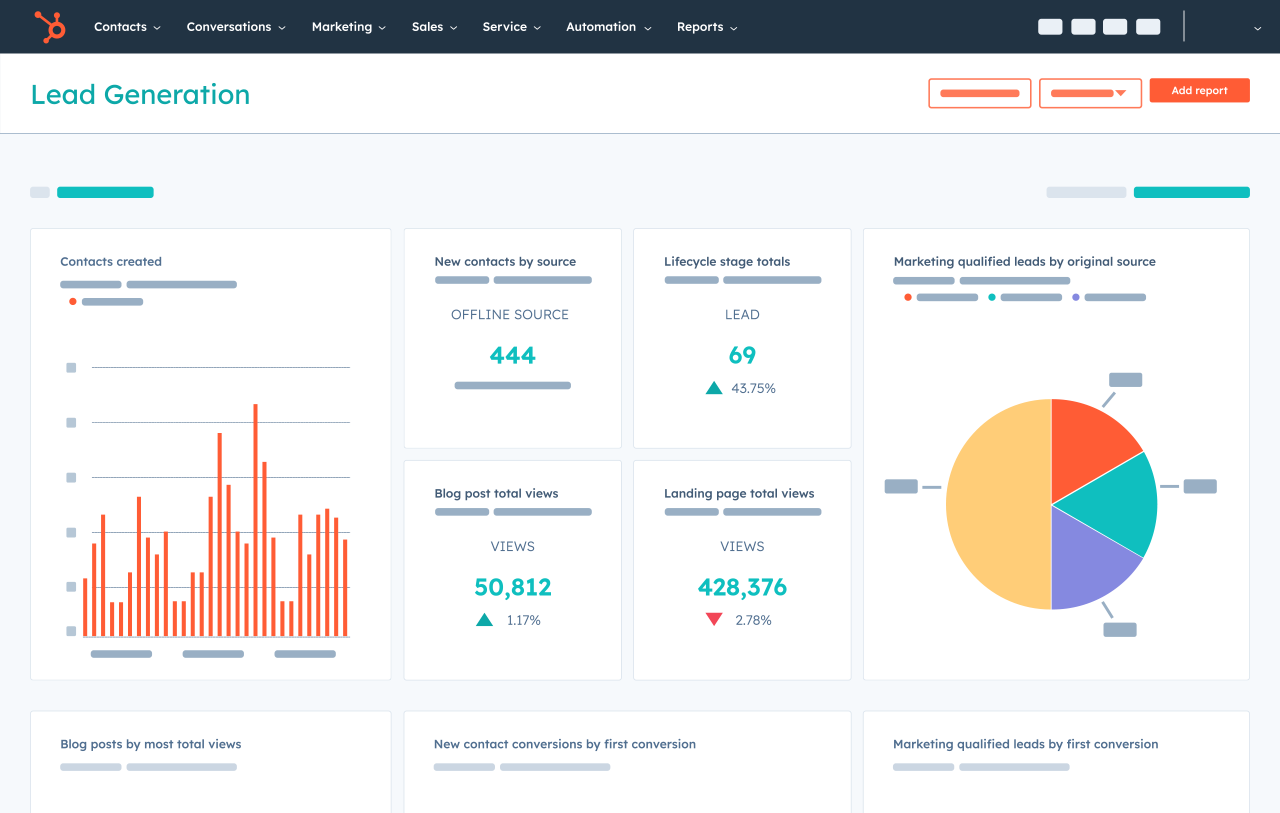
HubSpot is a leading customer engagement platform that offers a wide range of tools and features designed to help businesses attract, engage, and delight customers.
It provides solutions for inbound marketing, CRM (Customer Relationship Management), marketing automation, sales, and customer service.
In terms of customer engagement, HubSpot excels in several key areas:
1. Personalized Marketing
HubSpot enables tailored campaigns through customer data, covering email, social media, content, and ads.
2. CRM Integration
Consolidate data, monitor interactions, and manage relationships with HubSpot’s CRM, fostering personalized engagements.
3. Marketing Automation
Streamline tasks, nurture leads, and deliver relevant content with HubSpot’s automation, enhancing engagement.
4. Customer Support
Deliver excellent support with tools like live chat and ticketing, boosting satisfaction and loyalty.
5. Analytics and Reporting
Track engagement impact with HubSpot’s analytics, optimizing strategies for continuous improvement. This data-centric approach facilitates ongoing improvement and optimization of engagement strategies.
Pricing
- Marketing hub professional – $800 per month
- Marketing hub enterprise – $3600 per month
3. Salesforce
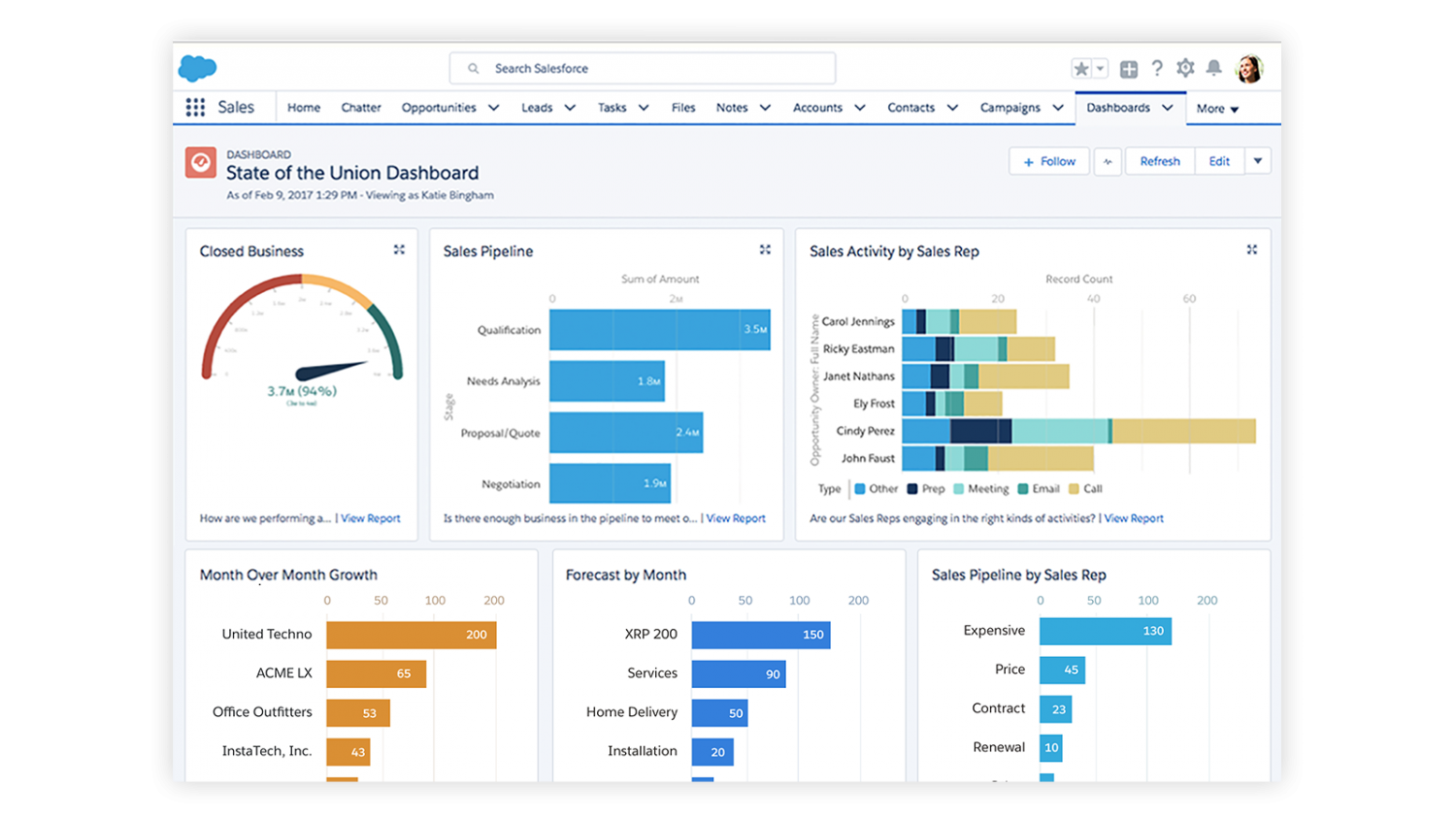
Salesforce is a versatile customer engagement solution offering diverse tools to assist businesses in effectively engaging customers across multiple touchpoints.
Here are some key aspects of Salesforce as a customer engagement platform:
1. CRM Integration
Salesforce centralizes customer data, tracks interactions, and creates personalized profiles for targeted engagement.
2. Marketing Automation
Automate email campaigns, lead nurturing, and workflows for timely and relevant content, boosting engagement and conversions.
3. Sales Enablement
Streamline processes, manage leads and deals efficiently, and collaborate better for improved engagement and relationships.
4. Service Cloud
Exceptional customer service with case management, live chat, and AI bots, enhancing satisfaction and retention.
5. Analytics and Insights
Robust analytics for monitoring metrics, analyzing behavior, and optimizing engagement strategies, aiding business growth.
Pricing
- Marketing cloud engagement – $1250 org per month
- Marketing account cloud engagement – $1250 USD per month (up to 10,000 contacts)
- Marketing cloud growth edition – $1500 USD per month
4. Twilio
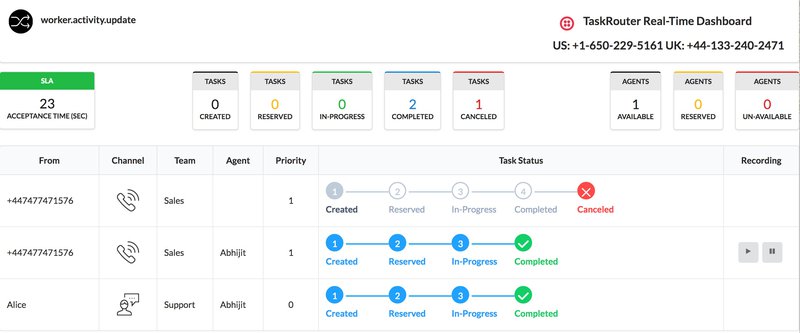
Twilio is a cloud communications platform that enables businesses to engage with customers through various channels such as SMS, voice, chat, and video. It provides APIs for real-time communication, personalized messaging, and omnichannel interactions.
1. Multichannel Communication
Twilio connects businesses with customers through SMS, voice calls, WhatsApp, etc., improving responsiveness and engagement.
2. Personalized Messaging
Twilio’s APIs send personalized messages tailored to behavior and preferences, boosting satisfaction and engagement.
3. Automation
Automate tasks, handle inquiries, and offer self-service options with Twilio’s workflows and chatbots, enhancing efficiency.
4. Real-time Communication
Engage instantly via live chat, calls, or video, resolving issues faster and building stronger customer relationships
5. Analytics and Reporting
Track metrics, monitor interactions, and optimize engagement strategies with Twilio’s analytics for better outcomes
Pricing
Visit Twilio’s pricing page for a detailed pricing plan.
5. Zendesk
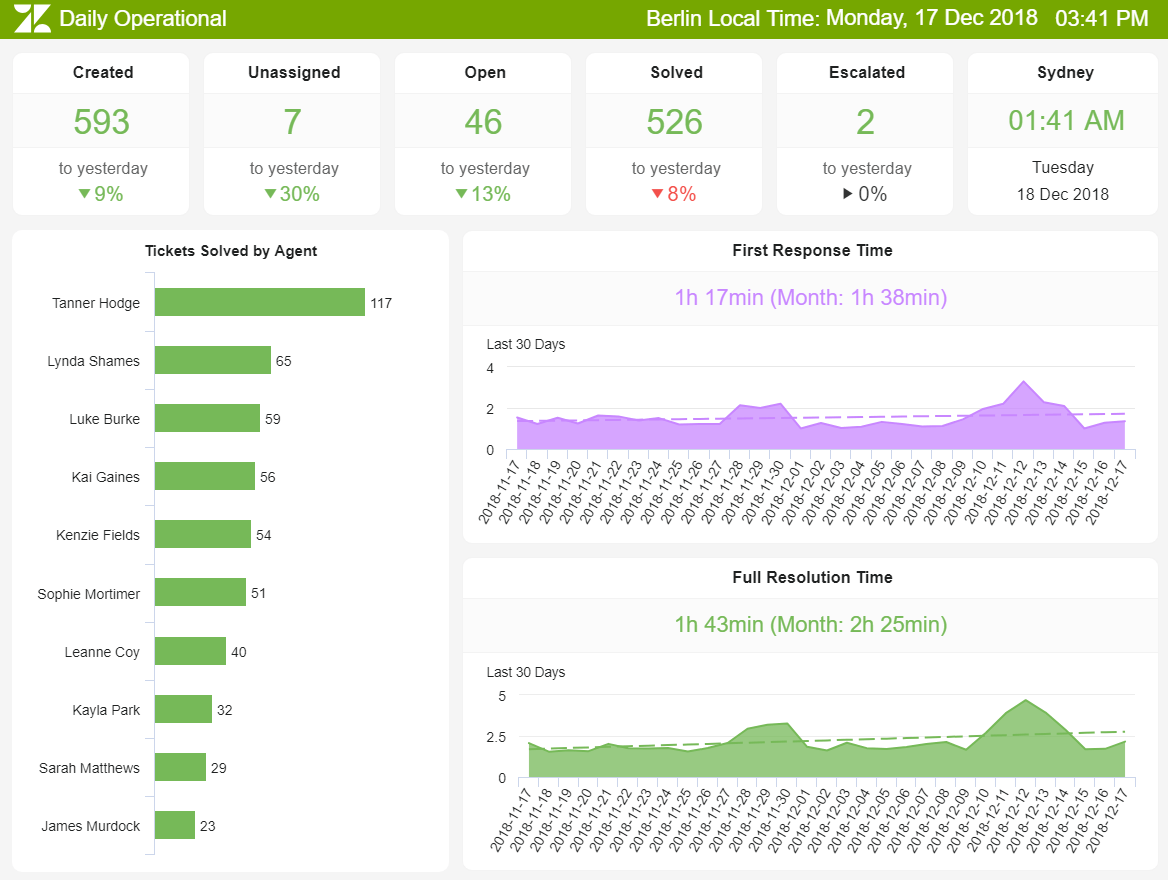
Zendesk is one of the top customer engagement platforms that specializes in managing complex customer relationships. It offers a suite of tools and features designed to help businesses effectively engage with customers, resolve issues, and provide exceptional support experiences.
1. Ticketing System
Zendesk’s ticketing system centralizes inquiries from various channels, ensuring prompt resolutions and streamlined team collaboration, leading to improved customer satisfaction and loyalty.
2. Live Chat
Zendesk’s live chat facilitates real-time customer engagement, quick issue resolutions, and personalized assistance, enhancing overall customer.
3. Knowledge Base
Zendesk’s knowledge base empowers customers with self-service options, reducing support ticket volume and improving operational efficiency. This also ensures access to up-to-date and accurate information.
4. Automation
Zendesk’s automation tools streamline support workflows, automate repetitive tasks, and ensure consistent service delivery. This leads to faster issue resolutions and improved operational efficiency.
5. Analytics and Reporting
Zendesk’s analytics and reporting features enable businesses to monitor key support metrics, track agent performance, and gain insights into customer trends.
This data-driven approach aids in identifying areas for improvement, optimizing support processes, and enhancing overall customer engagement.
Pricing
- Zendesk team – $55 per agent per month
- Suite growth – $89 per agent per month
- Suite professional – $115 per agent per month
- Suite enterprise – Contact the sales team for pricing
Conclusion
A Customer Engagement Platform is vital for businesses aiming to provide outstanding customer experiences.
By incorporating diverse communication and data management tools, these platforms empower businesses to interact with customers in a personalized and efficient manner.
Selecting the appropriate platform hinges on your unique needs, objectives, and the features that align best with your customer engagement strategies.
FAQs
1. How does a customer engagement platform improve customer experience?
A Customer Engagement Platform improves customer experience by centralizing customer data and communication channels, enabling personalized interactions, and automating routine tasks.
This ensures that customers receive consistent, timely, and relevant responses, which enhances their overall satisfaction and loyalty.
2. What is the difference between CRM and a customer engagement platform?
A CRM focuses primarily on managing customer relationships and sales processes, while a Customer Engagement Platform encompasses a broader range of functionalities.
A CEP includes CRM features but also integrates marketing automation, customer service tools, and omnichannel communication capabilities to provide a more holistic approach to customer engagement.
3. What are the two types of customer engagement?
- Transactional Engagement: Involves direct interactions related to specific transactions, such as purchases or customer service inquiries.
- Relational Engagement: Focuses on building long-term relationships through continuous, personalized interactions that foster loyalty and trust.
By leveraging a Customer Engagement Platform, businesses can effectively manage both types of engagement, ensuring that customers feel valued and supported at every stage of their journey.

Subscribe to our newsletter & never miss our latest news and promotions.









